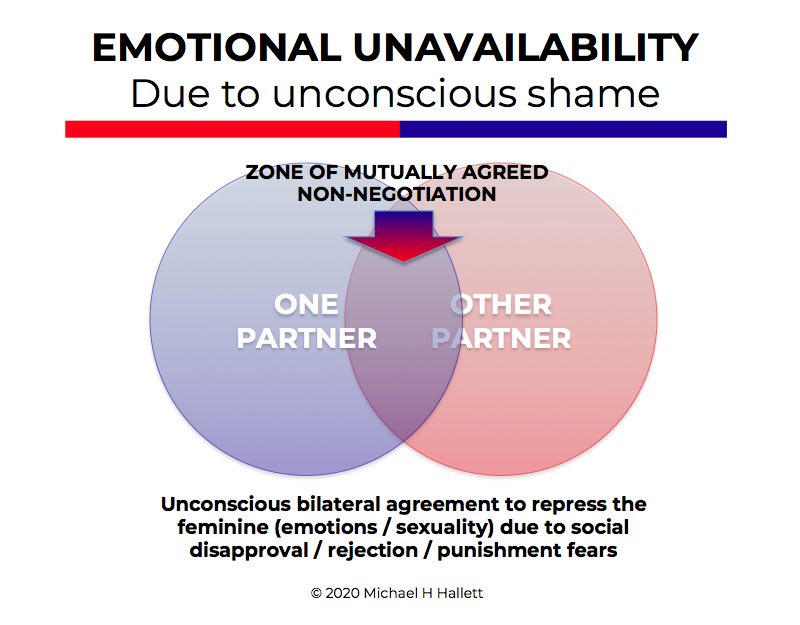What is emotional responsibility?
- 3 July 2020
- Posted by: Michael H Hallett
- Category: Cornerstones ,

What is emotional responsibility? It’s the Holy Grail. Eldorado. The X-factor. It’s what’s buried at the ‘X marks the spot’ on the pirate map. It’s the thing that U2 still hadn’t found when they released that cracking single a couple of decades back. I doubt if they’ve found it yet.
Emotional responsibility is perhaps the simplest concept to grasp when it comes to our unconscious processes. It is certainly the hardest to embody—to actually embed into our DNA so it becomes a lived experience, not just a mental idea.
Emotional responsibility is a hard concept to embody—to actually embed into our DNA so it becomes a lived experience, not just a mental idea.
So what is it?
What is emotional responsibility?
Wikipedia has no definition for this term. That already tells us we’re dealing with something slippery and elusive.
Dr Margaret Paul distinguishes between emotional dependency—where we look to others for emotional validation—and emotional responsibility. She defines the latter as follows:
Primarily, it means recognizing that your feelings of anxiety, depression, guilt, shame, anger, aloneness, jealousy, irritation and so on come from your own thoughts, beliefs and behaviour, rather than from others or from circumstances. Once you understand and accept that you create many of your own feelings, rather than your feelings coming from outside yourself, then you can begin to take emotional responsibility.
On Quora, Ben Spencer contributes an example:
For example, if someone says something that upsets you it’s because you decided to be upset by [the] comment, not necessarily due to that person’s intent. You own the emotion. Understanding this and reacting accordingly (or not) is your emotional responsibility.
I’d like to draw attention to Ben’s phrase, “you decided to be upset”. Surely, you ask, if someone says something that upsets me, how and when did I decide? I did not decide to be upset—it just happened!
Ben is absolutely right—you did decide to get upset. You made the decision unconsciously, with no ability to control or override it. This is emotional irresponsibility at work.
Survival of the fittest
Let’s start by asking where this emotional irresponsibility comes from. Is it innate human behaviour—or did humans somehow become conditioned to behave this way?
The latter is correct. Fundamental human nature is emotionally responsible. We adopted emotional irresponsibility according to the evolutionary principle of the survival of the fittest.
In A brief history of shame I wrote about long-term drought and famine in the equatorial belt from the Sahara through the Middle East to central Asia around 4000 BC. This caused the entire region to turn from savannah to desert, creating famine for the people in this region.
To survive, goddess-worshipping hunter-gatherer tribes turned violent. In The Fall, Steve Taylor writes of “a sudden, massive regression – a dramatic shift from harmony to chaos, from peace to war, from life-affirmation to gloom, or from sanity to madness” which created “a compulsion to aggression.”
Everything we know about these hunter-gatherer tribes suggests emotional responsibility. The compulsive aggression Taylor describes shows that at this time it was replaced by emotional irresponsibility.
The strongest tribes prospered at the expense of the weakest. The strongest were defined by their ability to maximise the masculine values of strength and intelligence while minimising feminine values (emotions and sexuality) through denial, denigration, punishment, suppression and repression.
Human emotions became buried in shame, where they’ve been ever since.
Unconscious shame
In What is unconscious shame? I describe the current emotional landscape that makes us unable to control our emotions because they’re in our unconscious.
In What is ancestral trauma? I link this to what happened back in 4000 BC. This is important because that’s the ground zero of emotional irresponsibility, which gives us a framework for healing. It’s like we’re running on a 6,000-year-old psychological operating system and need to upgrade it.
The key thing that happened is what I call the mother wound. The denial, denigration, punishment, suppression and repression I spoke of before caused a fundamental fracture in the human psyche where anything emotional became painful. To avoid that pain we’ve walled off our emotions ever since—until something happens that upsets us, when we involuntarily lose control.
This ‘walling off’ has buried them in our unconscious, under the emotional equivalent of reinforced concrete where we can’t access them.
Emotionally unavailable
One of the consequences of this is an inability to be fully emotional present with our nearest and dearest. We’re so afraid of our shamed emotions we don’t want to admit what’s inside us, for fear of upsetting our loved ones and falling out.
This creates an emotional dead zone at the heart of every relationship where neither party is willing to be completely honest with the other about their emotions and sexuality. This is termed being ‘emotionally unavailable’.

Emotional unavailability is a growing cause of relationship breakdowns as one partner (often the woman) wants a more honest and transparent relationship while the other (often the man) remains stuck in emotional irresponsibility, unable to grasp what the issue is because of their unconscious shame.
When we’re emotionally unavailable, we can’t nurture our own lives or those of others—like this elephant and its calf. We simply perpetuate irresponsibility.
Acquiring emotional responsibility
To acquire emotional responsibility we must, to quote from Pink Floyd’s The Wall, “Tear down the wall.” We must tear down the emotional concrete that separates us from our emotions.
This begins with showing up.
Filmmaker Woody Allen said that, “80% of success is showing up.” I doubt he was referring to emotional responsibility, but he may as well have been.
Showing up means taking ownership of your emotions even when you can’t control them. It means accepting responsibility for your behaviour. It means staring the truth in the face, no matter how bad a light it paints you in.
If you behave appallingly—as I have done—it means apologising and atoning as best you can. You’ll never gain control of your emotions without accepting responsibility for them while you’re as yet unable to control them.
Shadow work
Secondly, showing up means consciously working to gain control of your emotions. This means clearing your unconscious. It’s called shadow work. It’s long, painful, and messy. Those shadows are slippery and elusive. Yet, if you commit to showing up, you will flush them out one by one.
As you do, you will have a slowly dawning sense of what emotional responsibility is. It’s the ability to be fully present with your emotions, no matter what they are.
Only when you’re able to be fully present with your emotions are you able to be fully present with yourself. This is the great gift of emotional responsibility—the full presence of your own being in your own life.
This is the Holy Grail. Eldorado. The X-factor. The pirates’ buried treasure. What U2 are still looking for. Yes, at last, you’ve found it.
Photo by Casey Allen on Unsplash
